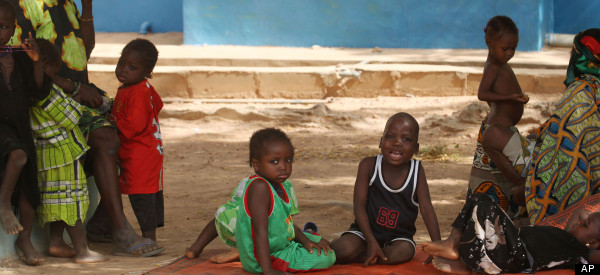A new analysis of data on U.S. teens born during the early 1980s ties slightly higher rates of adolescent smoking, drinking, arrests and thefts to macroeconomic conditions during the first year of life.
What was “striking for us was it basically went across all socioeconomic strata,” said Dr. Seethalakshmi Ramanathan, the lead author of the study. “From a national level, it seems like everyone is affected.”
Ramanathan’s study focused on babies born around the time of the recessions of 1980-1981 and 1982, when unemployment rates around the nation ranged from 6.6 percent to 11.25 percent, but she said she wouldn’t be surprised if the most recent recession also has a lasting impact.
“The mechanisms involved maybe different in intensity and severity, (but) based on the study it seems like there would be some effects,” said Ramanathan, a researcher at State University of New York Upstate Medical University.
Earlier research has suggested that widespread economic strain might negatively impact kids in the short term.
One group of researchers found that the rate of serious physical abuse towards children spiked as the U.S. economy crashed in 2007 (see Reuters Health report of September 19, 2011 here: reut.rs/q97xYA).
To get some sense of how recessions might affect children long term, Ramanathan and her colleagues used a 1997 survey of nearly 9,000 children who were born in the U.S. between 1980 and 1984.
The questions asked about drug, alcohol and gun use, arrests, theft and other behaviors.
The researchers were able to determine the economic circumstances for the region in which each kid spent his or her first two years of life.
They found that some of the delinquent behaviors were more common among children who were surrounded by higher unemployment during infancy.
For instance, the teens were nine percent more likely to use marijuana if the region where they celebrated their first birthday experienced a one percent drop in employment during the early 1980s.
This means that instead of 20 out of every 1,000 kids smoking pot, the increased risk in higher unemployment regions would result in 23 pot smokers out of every 1,000 teens.
Such an increase nationwide would result in 115,000 additional pot smokers, the group estimates in its report, published in the Archives of General Psychiatry.
“That’s a big number when you look at it,” Ramanathan told Reuters Health.
The risks for being arrested, joining a gang, stealing, and using alcohol and tobacco also increased between 6 percent and 17 percent among kids who were babies in areas experiencing a spike in unemployment.
The findings held up regardless of whether the kids grew up in wealthy homes or poor ones.
“These results suggest that, irrespective of socioeconomic status, unfavorable economic conditions during infancy may create circumstances that can have an adverse effect on the psychological development of the infant and lead to the development of behavioral problems,” the authors wrote in their study.
Assault, and the use of hard drugs or guns, however, were not affected by employment rates.
Ramanathan said it’s not clear why certain behaviors were more likely in regions impacted by the recessions.
“People have talked about how economic stability can help parents invest in the child’s development and how economic instability can affect family dynamics and the ability to be an effective parent,” she said.
But she added that this is speculation, and more studies need to unravel the factors that are taking root in infancy and spilling out in teenage delinquency.
“We can’t say high unemployment caused the effects. We don’t know what the mediating factors are,” Ramanathan said.
REUTERS


